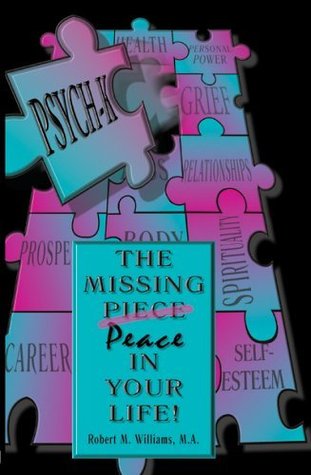More on this book
Kindle Notes & Highlights
Read between
September 30 - October 1, 2018
Formula for Manifestation Intention + Intent + Meaningful Ritual + Action = Manifestation
Step 1. Set Intention/Goal
Decide what y...
This highlight has been truncated due to consecutive passage length restrictions.
This should be stated in the first person, present tense (as if i...
This highlight has been truncated due to consecutive passage length restrictions.
Define the goal in sensory-based language, (i.e. visual, auditory, and kinesthetic language or symbols).
Step 2. Check for Intent
Decide whether you really want it, and what the ramifications might be in y...
This highlight has been truncated due to consecutive passage length restrictions.
Is it something you REALLY want or just a good idea, as long as you don’t have to work very hard or risk much to get it?
Step 3. Communicate Intention to the Subconscious Mind
Identify a meaningful “ritual” (activity or process) for communication with the subconscious,
Whatever you give meaning and importance to is more likely to work. The ritual will virtually always work if you can communicate directly with the subconscious mind, allowing it to select the ritual rather than choosing it consciously, or having the facilitator choose it.
This is an important step in PSYCH-K. If omitted, as is the case with many well-intentioned processes for personal change, it makes the outcome much less certain.
Without direct communication with the subconscious mind you are simply guessing which approach will work to make the change you desire. This step is critical! If done properly, it will align the subconscious mind with your conscious goal, turnin...
This highlight has been truncated due to consecutive passage length restrictions.
Step 4. Take...
This highlight has been truncated due to consecutive passage length restrictions.
Changing subconscious beliefs creates potential. Putting them into action creates results.
I’m not sure this vibes with the entire premise of the program. If subconscious programming is controlling 95% of the outcomes, then any conscious effort outside of reprogramming the subconscious is an effort at influencing the 5%.
Chapter 9 Testing Your Subconscious Beliefs
What You Don’t Know Can Hurt You!
This is your opportunity to see whether you have self-sabotaging beliefs in any of seven important areas of your life. These areas include Self-Esteem, Relationships, Prosperity, Health and Body, Spirituality, Personal Power, and Grief and Loss.
You can test your subconscious beliefs using the muscle testing technique described in Chapter 3. For best results, review the muscle testing section in this book or at the Web site at www.psych-k.com before proceeding. If you choose the Web site...
This highlight has been truncated due to consecutive passage length restrictions.
Treat this activity as a process of “discovery” rather than blame or shame.
Muscle test the following belief statements.
Spirituality
It has been said that the only real security we can know is our ability to change our point of view.
You may be surprised to learn that beliefs you hold to be true consciously are not always shared by your subconscious mind. Where a disagreement exists between the subconscious and conscious minds, doubt and struggle occurs.
In working with several thousand people over the years, I noticed that those who are the most fervent about their beliefs often are so because of a deeper insecurity about those very same beliefs.
Using the muscle testing technique described in Chapter 3, check the following beliefs to see what your subconscious mind believes.
Sample Beliefs: 1. I believe in God (Divine Intelligence, Buddha, Great Spirit, etc.). 2. I am loved by God (Divine Intelligence, Buddha, Great Spirit, etc.). 3. I trust God (Divine Intelligence, Buddha, Great Spirit, etc.). 4. I love God (Divine Intelligence, Buddha, Great Spirit etc.). 5. I am a necessary and important part of the Divine plan. 6. I am guided and protected by God (Divine Intelligence, Buddha, Great Spirit, etc.). 7. I have a personal relationship with God (Divine Intelligence, Buddha, Great Spirit, etc.).
Self-Esteem
How you view yourself profoundly influences how others view you.
your beliefs, especially the subconscious ones, are teaching the world how to treat you.
different. If you want to be free of the limitations of unworthiness in your life, be sure that your subconscious beliefs support that goal. Muscle
Muscle test the following beliefs to discover how you see yourself. Sample Beliefs: 1. I deeply appreciate and accept myself. 2. I love myself unconditionally. 3. I deserve the very best life has to offer. 4. I am confident and self-assured. 5. I am proud of my results and comfortable with my successes and my failures. 6. I am a good person. 7. I do my best and my best is good enough.
Relatio...
This highlight has been truncated due to consecutive passage length restrictions.
The subconscious mind is simply programmed to recognize and attract what is familiar, not necessarily what is desirable.
Here are some constructive, relationship-enhancing beliefs to check with muscle testing. Sample Beliefs: 1. It’s easy for me to give love to others. 2. It’s easy for me to receive love from others. 3. I am worthy of an intimate, passionate relationship. 4. I am ready for a powerful, intimate relationship in my life. 5. I am willing to risk loving and being loved. 6. It’s okay for me to express my truth in a relationship. 7. It’s okay for me to grow and change in a relationship.


